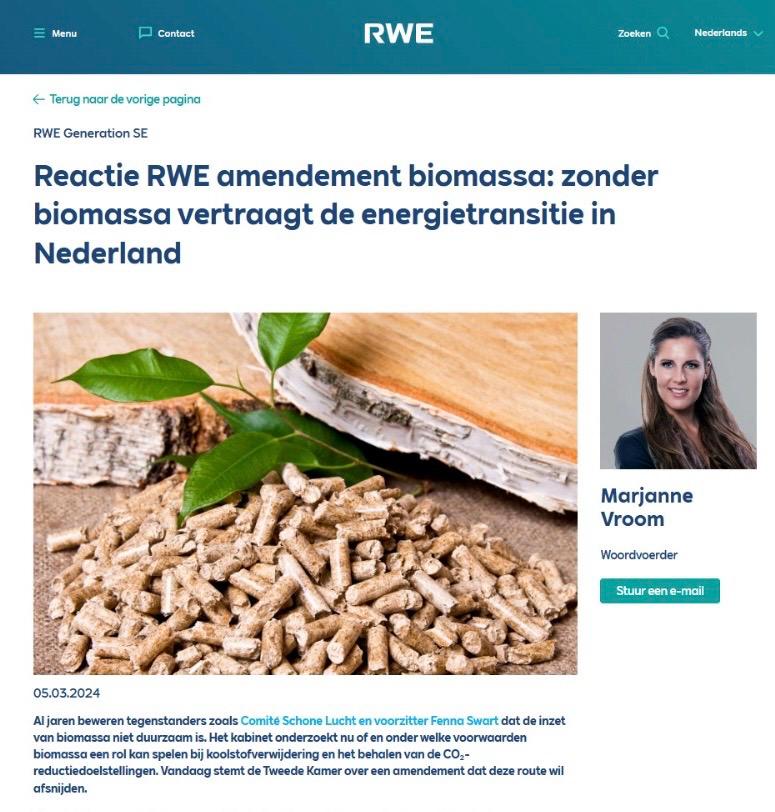Large-scale import of fragmented forests certainly not phased out in the Netherlands. On the contrary
Deforestation and forest degradation are increasing
To our great surprise, we discovered that earlier this year (in January, 2025) more than 97,000 tons of shredded forest for our biomass was shipped to Rotterdam from Estonia.
This is distressing news because since the Russian invasion of Ukraine, hardly any or no felled forests have been imported from the Baltic States to the Netherlands. Since the Russian invasion, the ‘focal point’ of large-scale wood imports for biomass combustion from the Baltic States largely shifted to the US. Large quantities (usually 30,000 tons per load/equivalent to approximately 30,000 trees) are currently shipped to Rotterdam every four days, via bulk carriers, to be burned for our energy by RWE in the Netherlands.
Industrial wood imports for biomass have therefore certainly not been phased out in the Netherlands
If we look back a little further and more broadly, in the period 2010-2024, we see a number of remarkable developments:
- The largest part comes from the US since 2021
- Since 2021 (Russian invasion of Ukraine) drastic shift from the Baltic States to the US
- Also wood pellets from Canadian primeval forests
- Origin of wood pellets from Canada (British Columbia) amounts to 216k in 2024
- Remarkably, also a lot of new imports from Malaysia and Vietnam. Together accounting for about 20% of imports. Deforestation is the result
- In addition to the US, Malaysia and Vietnam there is also a strong increase in imports from other non-EU countries
- In 2022, the Dutch government decided to immediately stop subsidies for ‘new’ government funds (nos.nl/artikel/2426118-stop-op-subsidies-voor-stook-van-biogrondstoffen-voor-warmte)
- However, this did not mean, as many still think, that the biomass industry is declining or even stopped. On the contrary
- Despite this subsidy stop in the Netherlands, biomass subsidies will continue until at least 2027. The largest bulk of the biomass incentive subsidies (SDE) are in these existing, long-term subsidies. The maximum around 2021 is around 3 million tons/year.
According to RWE, BECCUS is now targeting 7.5 million tons per year in the Netherlands. This would make the Netherlands a frontrunner – and even the world number 1 – surpassing England (now good for approximately 7 million tons of fragmented forests per year0>
World upside down
Yet or perhaps – precisely – for this reason RWE continues to promote biomass, and dismisses the Clean Air Committee as an ‘opponent’ of Clean Air…

‘’Without biomass, the energy transition in the Netherlands will slow down. It is a sustainable alternative to fossil fuels and, in combination with capture and storage, leads to the removal of CO2 from the air”, according to RWE.
So we have been warned.
Source RWE Benelux:
benelux.rwe.com/pers/2024-03-05-zonder-biomassa-vertraagt-de-energietransitie-in-nederland
Source Eurostat:
globaltimber.org.uk/eutradefuelwoodchipsresiduespellets.htm
